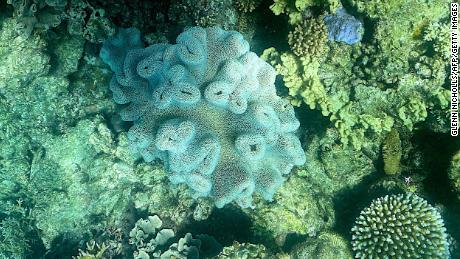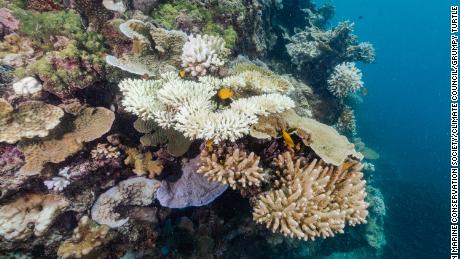The report looked at 719 reefs during the Australian 2021-2022 season. It found that 654 reefs (or 91%) “exhibited some bleaching.”
“The surveys confirm that there was a mass bleaching, with coral bleaching being observed at multiple reefs across all regions. This is the fourth mass bleaching incident since 2016, and the sixth to have occurred on the Great Barrier Reef Reef since 1998,” the Great Barrier Reef Marine Park Authority of Australia stated in its findings.
The waters of the Great Barrier Reef began to warm in December 2021 and reached “historical summer maxima.” The report revealed that the reef was subject to three heat waves from December 2021 through April 2022. These heat waves increased “thermal stress” in the northern and central regions of the reef.
Stressed coral releases algae from its tissue, depriving it a food source. Coral can become white as its carbonate structure is exposed if the conditions don’t improve.
“So, we’re really losing that window for recovery. We are seeing back-to–back bleaching events, and back-to–back heat waves. She stated that corals are not adapting to these new conditions.
The report warned that climate change remains the greatest threat to the reef and that “events that cause disturbances to the reef are becoming more common.”
Scientists warn that the time is running out for reefs to recover, and that governments must address the root cause of the climate crisis.

The Great Barrier Reef is Australia’s national treasure. It stretches 1,400 miles (2.300 km) along the Queensland coast and attracts around three million tourists annually before the pandemic.
The Australian government has been under constant pressure from UNESCO for proof that it is doing enough to save the coral reef. Global climate experts have also called out the Australian government for not doing enough in order to transition Australia away fossil fuels and reduce greenhouse gas emissions.
After leading scientists called for the publication of the report, the agency responded by publishing its findings before May 21st’s federal election.












